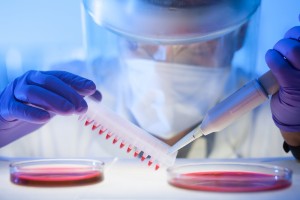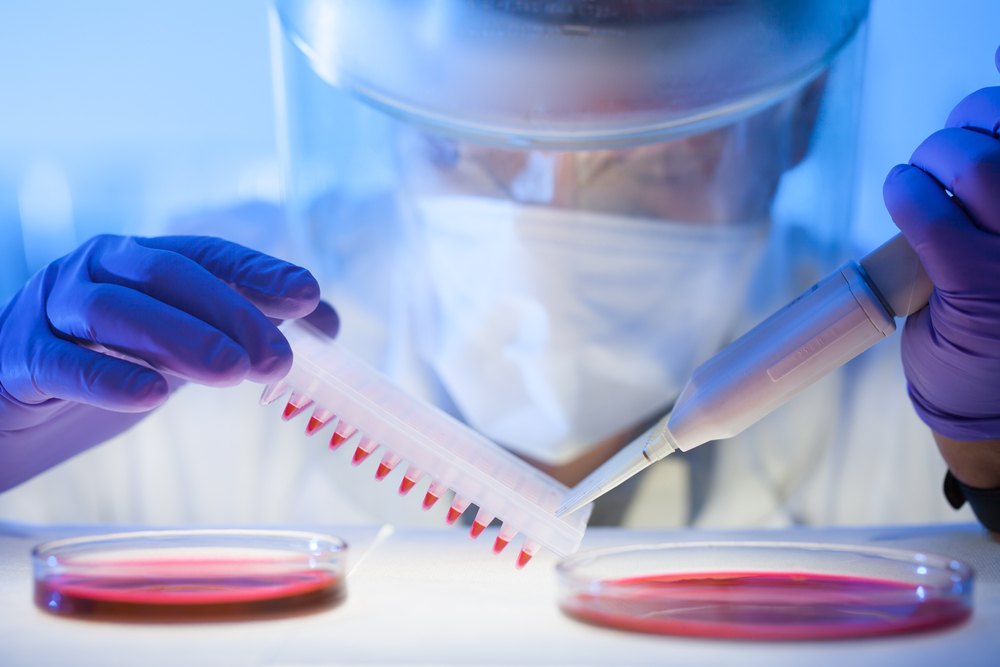 Celsion Corporation has announced the submission of its Phase I clinical trial protocol to the U.S. Food and Drug Administration (FDA) for GEN-1, a DNA-based immunotherapy for cancer treatment.
Celsion Corporation has announced the submission of its Phase I clinical trial protocol to the U.S. Food and Drug Administration (FDA) for GEN-1, a DNA-based immunotherapy for cancer treatment.
The protocol was developed to evaluate the ideal dose and activity of GEN-1 in newly diagnosed ovarian cancer patients, who will receive neoadjuvant chemotherapy.
Previous clinical trials have already demonstrated the safety and efficacy of this immunotherapy in ovarian cancer patients whose tumor had metastasized to the peritoneal region. Furthermore, GEN-1 is being investigated in a Phase Ib study together with PEGylated doxorubicin to treat patients diagnosed with platinum-resistant ovarian cancer.
GEN-1 was developed using the company’s TheraPlas platform technology, and is composed of an IL-12 DNA plasmid combined with a nanoparticle delivery system that can enter cancer cells and secrete the IL-12 cytokine, a protein that has the capacity to elicit a strong anti-tumoral response.
“GEN-1 is designed to locally activate IL-12 production which can stimulate the patient’s immune system to attack and destroy cancer,” Dr. Nicolas Borys, Celsion’s Senior Vice President and Chief Medical Officer, said in a press release. “In preclinical and clinical studies performed to date, GEN-1 has demonstrated good safety and impressive immune system stimulation and activity, and this trial will evaluate its value as an adjuvant to chemotherapy in patients with a relatively healthy immune system. We now look forward to initiate the study in the second half of this year.”
Celsion’s study, expected to begin in the second half of 2015, will evaluate which is the safest and more tolerable dose of GEN-1 in ovarian cancer patients that can also enhance patient’s immune response.
“Developing more effective immunotherapy approaches to ovarian cancer is a high priority for those of us who care for the thousands of patients affected by advanced ovarian cancer. GEN-1 is a novel IL-12 expressing lipopolymer that has demonstrated promising activity in preclinical and early phase clinical trials in ovarian cancer,” Ronald D. Alvarez, MD, Professor and Director of the Division of Gynecologic Oncology at the University of Alabama at Birmingham (UAB) and a member of the Company’s Medical Advisory Board, added in the news release. “The proposed trial to use GEN-1 in combination with neoadjuvant chemotherapy will provide a unique opportunity to assess how cytokine-based compounds such as GEN-1 directly affect ovarian cancer cells and the tumor microenvironment in newly diagnosed patients.”
Michael H. Tardugno, the Company’s Chairman, President and Chief Executive Officer stated, “GEN-1 holds tremendous promise as a potential cancer treatment in the rapidly emerging area of immuno-oncology. Unlike the toxicities, poor tolerability, and poor pharmacokinetics of systemically administered recombinant IL-12, the beauty of GEN-1 is that it inspires secretion of highly-tolerable endogenous IL-12. Designed in consultation with leading thought leaders, this Phase I trial is expected to define an optimal dose, potentially an enhanced population, and provide insights on powering for a registration program as the candidate progresses through development.”


